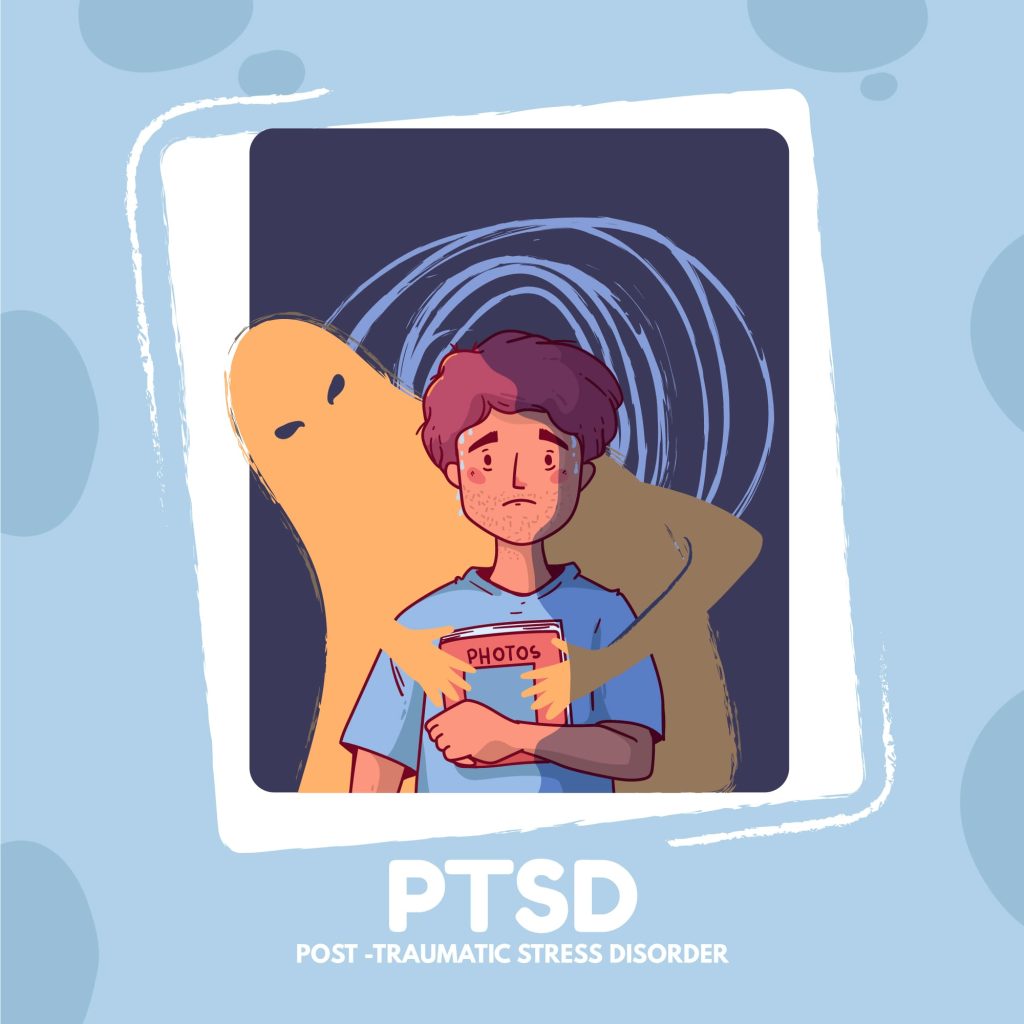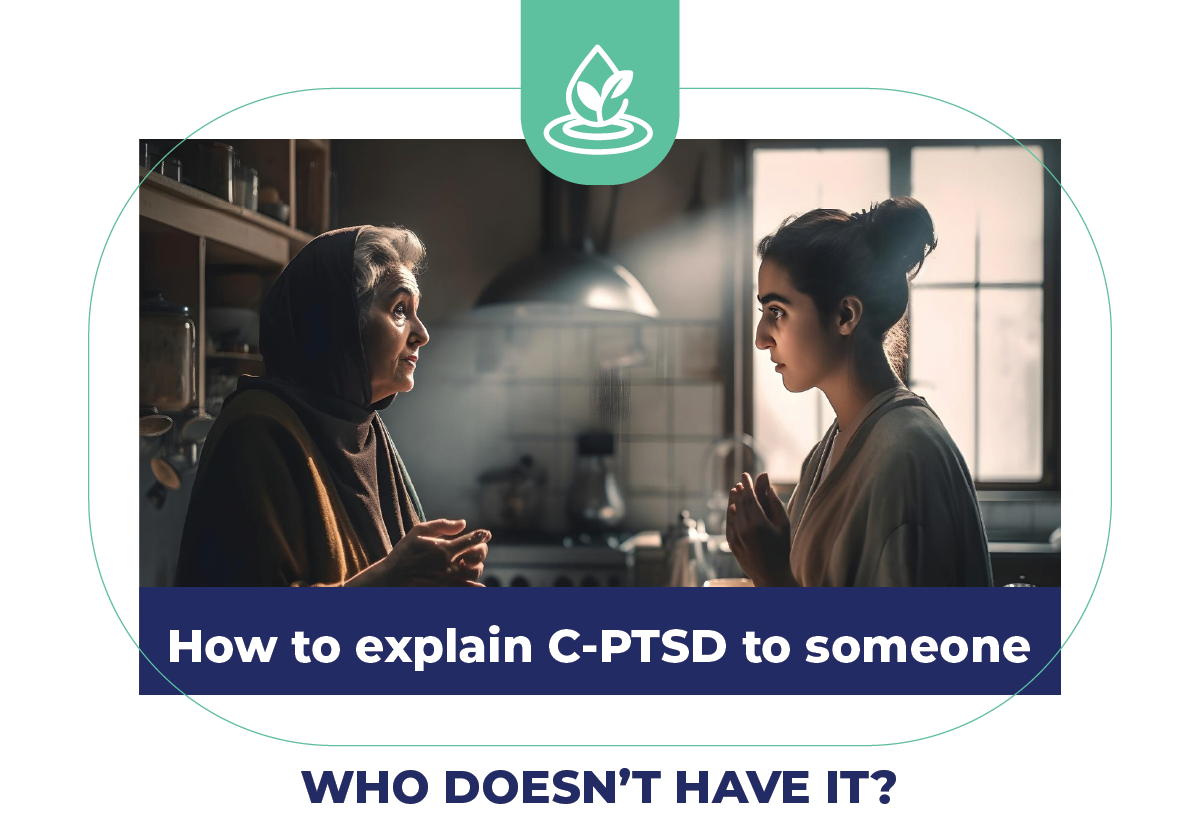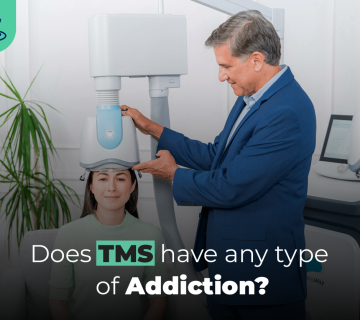C-PTSD. Have you heard the term? It is an acronym for “complex post-traumatic stress disorder”.
Many psychology-related terms have recently become commonplace. One frequent example is “trauma.” But the main difficulty is: “How to explain C-PTSD to someone who doesn’t have it”.
Of course, there are some real advantages to this increased awareness. Many people have a distorted understanding of what “trauma” means, influenced by movies or even social media posts.
This misunderstanding may unintentionally invalidate many trauma survivors. We expect a trauma survivor to have experienced a specific type of event.
In reality, trauma is subjective and can develop gradually over time. This is exactly how Complex Post-Traumatic Stress Disorder occurs.
Complex Post-Traumatic Stress Disorder

Chronic trauma, such as repeated child abuse or domestic violence, can lead to complex post-traumatic stress disorder (CPTSD). It is closely linked to PTSD and borderline personality disorder. It can be cured by means of medicine and talk therapy.
For the treatment of PTSD and its related disorders, you may share your concerns with Dr. Gezel Saheli and Dr. Mohsen Kheradpezhouh. They’ll treat their patient affectionately without being mean and recommend the treatment option to the patient that suits them the most.
Complex PTSD And Relationships
Complex PTSD patients may also struggle with trust, forming and maintaining healthy relationships, and feeling stable about themselves. Hypervigilance, chronic feelings of guilt or shame, and dissociative episodes are all common symptoms of complex PTSD.
A healthy, satisfying relationship is possible for someone with complex PTSD relationships when they have a supportive, understanding partner.
Whenever you are searching for the C-PTSD therapists near me for yourself, opt for the option that suits you best.
Complex PTSD And Sleep
Complex Post-Traumatic Stress Disorder (C-PTSD) disrupts sleep patterns and quality regularly. These disturbances can manifest as insomnia, nightmares, hypervigilance, flashbacks, restless sleep, frequent awakenings, fatigue, and daytime sleepiness.
Among symptom domains, it has been demonstrated that sleep disturbances are more common in subjects suffering from C-PTSD than in those suffering from PTSD, with insomnia occurring up to 18 times more frequently.
Symptoms of Complex PTSD
How to explain C-PTSD to someone who doesn’t have it? By elaborating on the symptoms, you can explain C-PTSD to someone who doesn’t have it.
- Bad memories of past
- Short-term memory loss.
- A distracting feeling of getting lost.
- Unable to control the feelings.
- Stomach issues.
- Sleep Apnea.
- Can’t manage the relationships.
How to explain C-PTSD to someone who doesn’t have it?
People with the diagnosis frequently relive their traumatic events over and over. This can take the form of intrusive thoughts, nightmares, or even flashbacks to the event. Your loved ones can imagine you’re watching a movie in your head, replaying the highlights of your trauma whenever something triggers it.
When you encounter a trigger that reminds you of a previous trauma, your mind automatically returns to the place of danger.
As a result, you may be unable to respond to your loved ones until the flashback is over. It causes you to lose touch with the present moment and become immersed in the past.
Complex PTSD misdiagnosed as BPD?
There are several symptoms of borderline personality disorder (BPD) include:
- Feeling of uselessness
- Rude behaviour
- Annoyance in long-term relation
- Feeling isolated
According to the current criteria for each condition, the main distinction is that chronic trauma must be the cause of CPTSD dissociation, whereas trauma does not have to be the cause of BPD. However, BPD is strongly linked to childhood trauma, such as abuse or neglect.
Another distinction is that BPD typically develops in early adulthood. C-PTSD can be developed at any age.
Final Note
If you are suffering from complex post-traumatic stress disorder, you will require assistance in overcoming what has occurred.
By contrast, the concern is How to explain C-PTSD to someone who doesn’t have it. Although it’s difficult, it’s not impossible. You can explain it to someone who does not have it.
At Atlantis Wellness Cetner, we believe in guiding you through family therapy so that you can share your feelings with others.
Family therapy provides a safe environment in which an objective third party can moderate your conversations.
Our skilled therapists can assist you in your personal experience with complex PTSD relapse in a means that your family members can better recognize.
FAQs
What not to say to someone with complex PTSD?
Saying the wrong thing may make them feel more isolated, so be patient and demonstrate that they are not alone.
What does it feel like to have C-PTSD?
Survivors of Complex PTSD struggle with emotions, including experiencing, controlling, and, for many, accurately comprehending or labeling them.
What living with C-PTSD is like?
C-PTSD sufferers may experience feelings of shame, guilt, and low self-esteem as a result of the trauma.
Why is C-PTSD so hard to treat?
Complex post-traumatic stress disorder (C-PTSD) is a condition similar to post-traumatic stress disorder (PTSD), but it has additional characteristics that make treatment more difficult. This includes issues with self-esteem, emotion management, and trust in others.







No comment